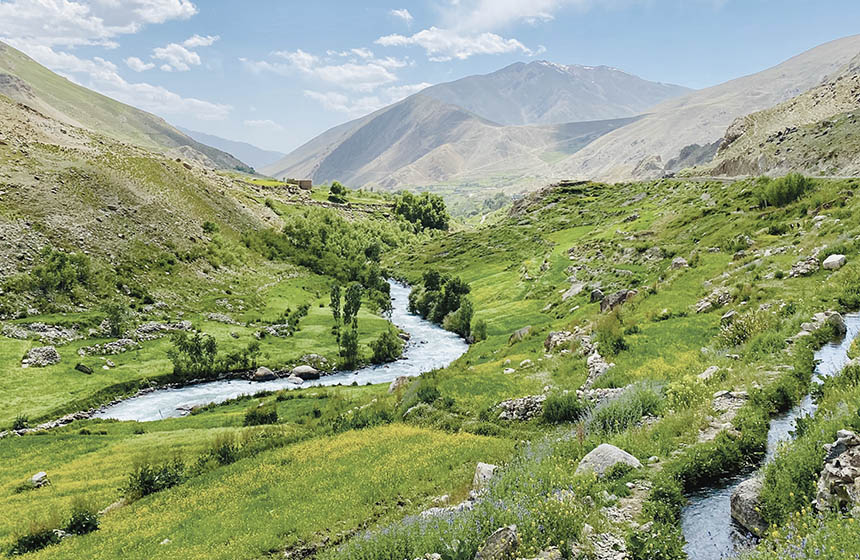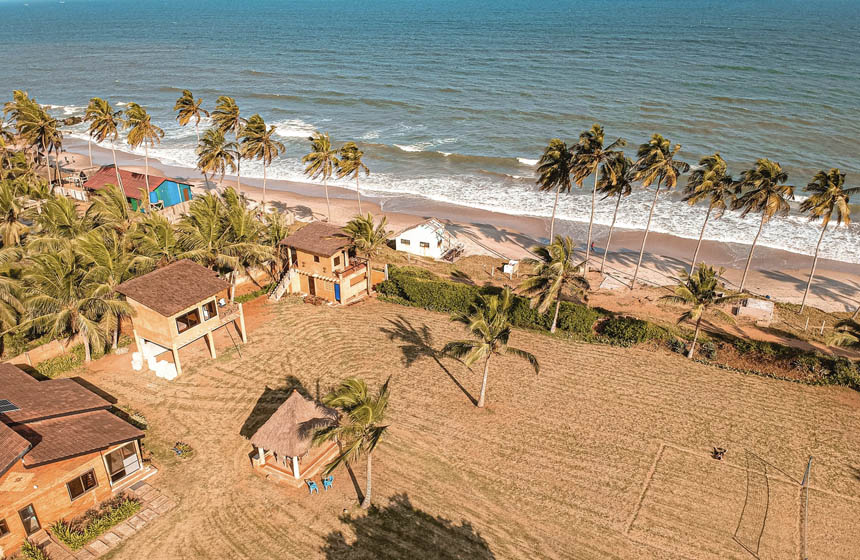Reforestation, agroforestry, and fishing regulations along the Gulf of Kabuno
Sustainable agriculture and agroforestry combined with political advocacy for improved regulation of fishing in Lake Kivu are helping restore coastal forests and aquatic habitats in the Gulf of Kabuno. Reforestation efforts also aim to improve the carbon storage potential of the surrounding area to counter Lake Kivu’s high rates of carbon and methane emissions.
Nature-based Intervention:
The Program to support Arable and Livestock Farmers for Local Development (PAEDE) is working to train local community members in more sustainable agricultural practices. Furthermore, communities are engaging in reforestation projects using agroforestry species to help improve the carbon storage potential of the area. These reforestation efforts also help preserve endangered bees and fingerlings. In order to help protect aquatic species, PAEDE has introduced riparian sugar cane and seaweed which provide suitable environments to protect fish and other wildlife. Furthermore, in order to advance an enabling regulatory environment for these developments, PAEDE also advocates for legal changes to better regulate fishing, including in protected areas on the shoreline of the Gulf of Kabuno.
Overview of context and outcomes:
Ecosystems on the Gulf of Kabuno shores are threatened by deforestation, habitat destruction, and the spillover effects of unsustainable fishing in Lake Kivu.
Case effectiveness on
Climate change
A 10-meter-wide strip of land has been reforested along part of the shore of Lake Kivu which is predicted to help absorb carbon dioxide and methane gases released the lake.
Ecosystem health
Ecological effect: PositiveIt is reported that reforestation projects and the introduction of beehives have reduced local community pressure on resources along the shore.
Socioeconomic outcomes
Communities have reportedly gained greater access to markets and are able to sell the products of their agroforestry work to supplement local incomes.
Governance
This project is run by the Program to support Arable
and Livestock Farmers for Local Development and works to govern the project in collaboration with local communities.
Finance
This projected in financed and implemented by PAEDE alongside the support of the Organisation of Naturalists for the protection of the Environment (ONDE), Association of Young Visionaries for Development in Congo (AJVDC) and the Democratic Republic of Congo’s Ministry of the Environment, Nature Conservation and Sustainable Development (MECNDD).
Monitoring and evaluation
There are no clearly reported monitoring protocols currently identified.
Trade-offs and limitations
No information yet available on tradeoffs.

Intervention type
- Food production
Ecosystem type
- Terrestrial production
Climate change impacts addressed
- Other climate impact
Instigators
- Local NGO or CBO (eg. indigenous)
- National development organisation
- National government/agency
Societal challenges
- Biodiversity conservation
- Climate change mitigation
- Rights/empowerment/equality
Outcomes
- Food security: Not reported
- Water security: Not reported
- Health: Not reported
- Local economics: Unclear
- Livelihoods/goods/basic needs: Not reported
- Energy security: Not reported
- Disaster risk reduction: Not reported
- Rights/empowerment/equality: Positive
- Conflict and security: Not reported
- No. developmental outcomes reported: 4
Resources
Read resource 1Literature info
- Grey literature



